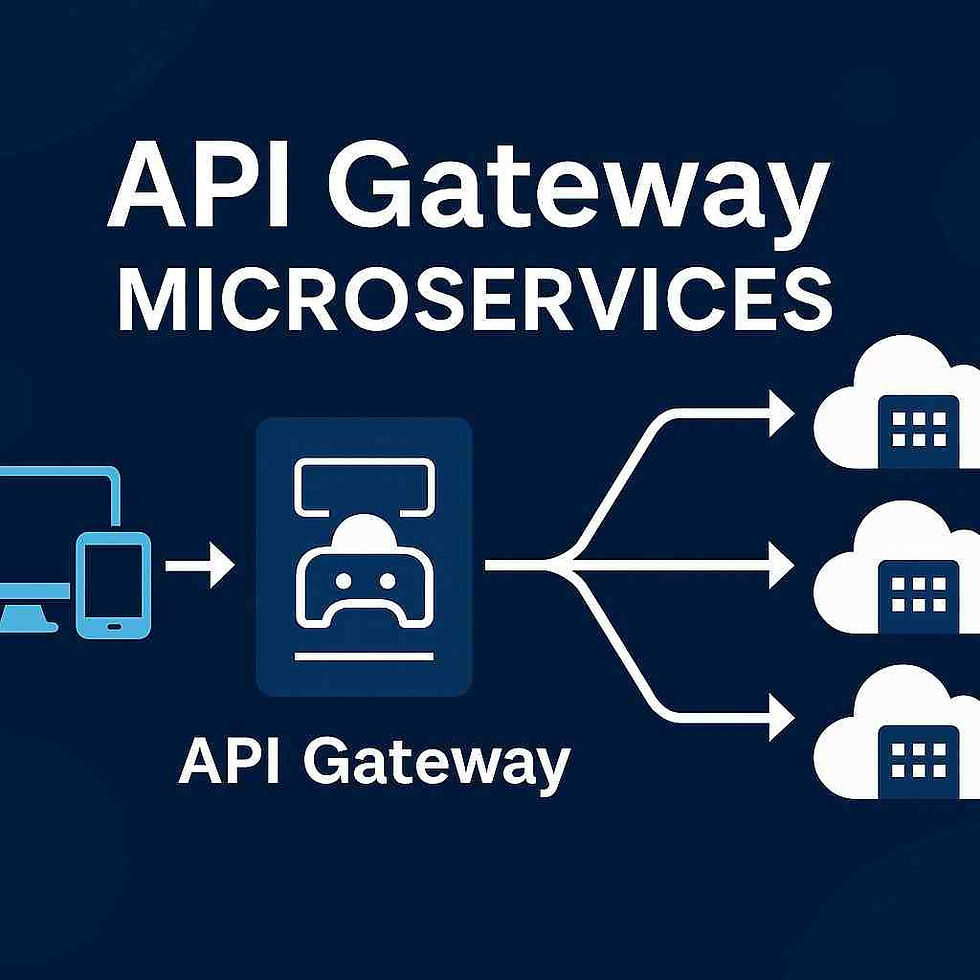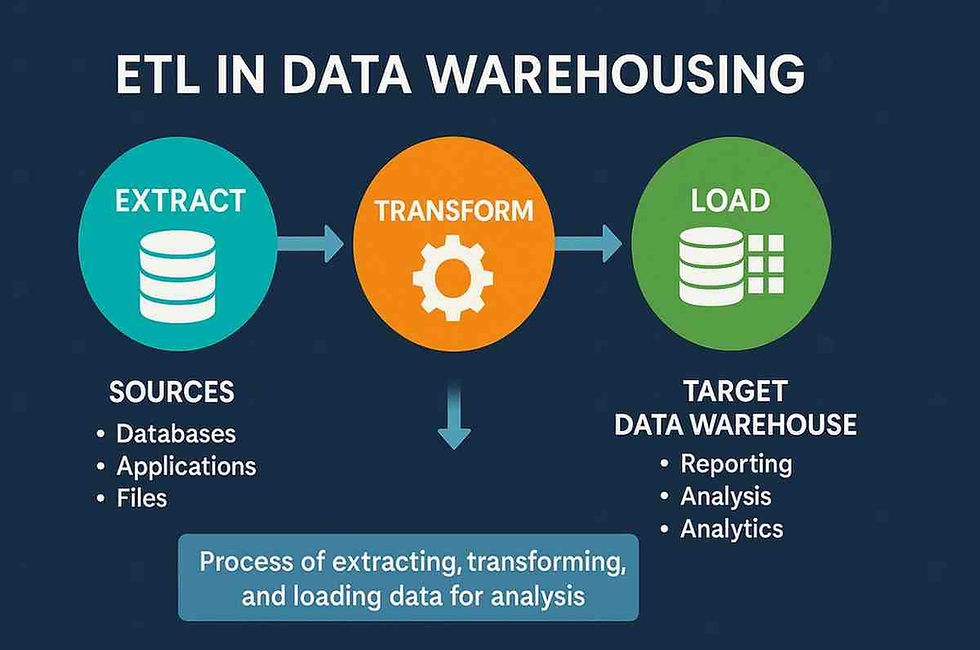Guide to Web API Interview Questions: Q&A Guide for 2025
- Gunashree RS
- Jun 12, 2025
- 5 min read
Are you preparing for a web API developer interview? You're in the right place! Web API development has become one of the most sought-after skills in the tech industry, with demand continuing to surge in 2025. Whether you're a fresh graduate or an experienced developer looking to switch roles, mastering web API interview questions is crucial for landing your dream job.
Why Web API Skills Are More Important Than Ever
The digital transformation has made APIs the backbone of modern applications. According to the State of Quality Report 2024, API service is the second-most automated AUT, following web applications. This statistic highlights how critical API knowledge has become in today's development landscape.
Key Market Statistics:
API developers earn an average annual salary of $97,452, with entry-level positions starting at $72,000 and experienced professionals earning up to $120,000 annually
Entry-level API developers with less than one year of experience can expect to earn around $60,000 per year on average
The average annual pay for a Rest API Developer Job in the US is $114,964 a year

Essential Web API Concepts Every Developer Should Know
Q: What is a Web API?
A: A Web API (Application Programming Interface) is a set of protocols, tools, and definitions that allow different software applications to communicate with each other over the internet. It defines the methods and data formats that applications can use to request and exchange information.
Key characteristics:
Platform-independent communication
Uses HTTP/HTTPS protocols
Supports multiple data formats (JSON, XML)
Enables integration between different systems
Q: What's the difference between Web API and Web Service?
A: While both enable communication between applications, they have distinct differences:
Web API:
Lightweight and fast
Supports multiple protocols (HTTP, TCP, etc.)
Can return data in various formats
More flexible architecture
Web Service:
Primarily uses the SOAP protocol
XML-based communication
More rigid structure
Better for enterprise-level applications
REST API Fundamentals - The Heart of Modern Web Development
Q: What is REST, and why is it important?
A: REST (Representational State Transfer) is an architectural style for designing networked applications. It's become the standard for web APIs because of its simplicity and scalability.
REST Principles:
Stateless: Each request contains all necessary information
Client-Server: Clear separation of concerns
Cacheable: Responses can be cached for better performance
Uniform Interface: A Consistent way to interact with resources
Layered System: Hierarchical system architecture
Q: What are the main HTTP methods used in REST APIs?
A: REST APIs use standard HTTP methods to perform different operations:
Method | Purpose | Example Usage |
GET | Retrieve data | Get user information |
POST | Create a new resource | Create a new user account |
PUT | Update the entire resource | Update user profile |
PATCH | Partial update | Update the user email only |
DELETE | Remove resource | Delete the user account |
API Authentication and Security Best Practices
Q: What are the common authentication methods for Web APIs?
A: Security is paramount in API development. Here are the most common authentication methods:
1. API Keys
Simple token-based authentication
Easy to implement but less secure
Suitable for low-risk applications
2. OAuth 2.0
Industry-standard authorization framework
Secure token-based authentication
Supports different grant types
3. JWT (JSON Web Tokens)
Self-contained tokens with encoded information
Stateless authentication
Popular for modern applications
4. Basic Authentication
Username and password encoded in base64
Simple but requires HTTPS
Not recommended for production
Q: How do you handle API versioning?
A: API versioning is crucial for maintaining backward compatibility. Common approaches include:
URL Versioning:
https://api.example.com/v1/users
https://api.example.com/v2/usersHeader Versioning:
Accept: application/vnd.api+json;version=1Query Parameter Versioning:
https://api.example.com/users?version=1API Testing and Quality Assurance
Q: What are the key aspects of API testing?
A: API testing ensures your endpoints work correctly and handle edge cases properly:
Testing Types:
Functional Testing: Verify API meets requirements
Load Testing: Check performance under stress
Security Testing: Identify vulnerabilities
Integration Testing: Ensure proper system interaction
Regression Testing: Confirm changes don't break existing functionality
Popular Testing Tools:
Postman
Rest Assured
Newman
JMeter
Insomnia
Error Handling and Status Codes
Q: How should you handle errors in Web APIs?
A: Proper error handling improves user experience and debugging.
Common HTTP Status Codes:
200 OK: Successful request
201 Created: Resource successfully created
400 Bad Request: Invalid request syntax
401 Unauthorized: Authentication required
404 Not Found: Resource doesn't exist
500 Internal Server Error: Server-side error
Best Practices:
Use appropriate HTTP status codes
Provide meaningful error messages
Include error codes for programmatic handling
Log errors for debugging
Q: What is rate limiting, and why is it important?
A: Rate limiting controls the number of API requests a client can make within a specific time period. It's essential for:
Preventing API abuse
Ensuring fair resource usage
Maintaining service quality
Protecting against DDoS attacks
Implementation strategies:
Token bucket algorithm
Fixed window counters
Sliding window logs
Distributed rate limiting
Performance Optimization Techniques
Q: How can you optimize API performance?
A: Performance optimization is crucial for user experience and scalability:
Optimization Techniques:
Caching: Implement response caching
Pagination: Limit response size
Compression: Use GZIP compression
Database Optimization: Efficient queries
CDN Usage: Geographic distribution
Async Processing: Non-blocking operations
Performance Metrics to Monitor:
Response time
Throughput
Error rates
Resource utilization
Frequently Asked Questions
What skills do I need to become a Web API developer?
Strong programming skills in languages like C#, Java, Python, or Node.js, understanding of HTTP protocols, database knowledge, and familiarity with API design patterns are essential.
How difficult are Web API interviews?
Web API interviews typically range from moderate to challenging, depending on the role level. They focus on practical knowledge, problem-solving skills, and understanding of best practices.
What's the career growth potential for API developers?
The career growth is excellent, with opportunities to advance to senior developer, API architect, or technical lead positions. The increasing demand ensures strong job security.
Should I focus on REST or GraphQL for interviews?
While REST remains more common in interviews, having knowledge of both REST and GraphQL gives you a competitive advantage.
How long does it take to prepare for a Web API interview?
With consistent study, 2-4 weeks is typically sufficient to prepare for most Web API interviews, depending on your existing experience.
What are the most common mistakes in API interviews?
Common mistakes include not understanding HTTP status codes, poor error handling strategies, ignoring security considerations, and lacking knowledge of testing practices.
Do I need to know multiple programming languages?
While specializing in one language is acceptable, familiarity with multiple languages and frameworks demonstrates adaptability and broader technical knowledge.
How important is API documentation knowledge?
Very important! Understanding tools like Swagger/OpenAPI and being able to write clear documentation are often evaluated in interviews.
Conclusion: Web API Interview Questions
Mastering web API interview questions requires understanding both theoretical concepts and practical implementation. The growing demand for API developers, with salaries ranging from $60,000 to $120,000+ annually, makes this skill set extremely valuable in today's market.
Remember to practice hands-on coding, understand security best practices, and stay updated with current trends. Focus on building real projects that demonstrate your API development skills, as practical experience often weighs more than theoretical knowledge.
Key Takeaways
• High Demand Skills: Web API development is one of the most sought-after skills with excellent salary prospects
• Master the Fundamentals: Understand REST principles, HTTP methods, and status codes thoroughly
• Security First: Always consider authentication, authorization, and security best practices
• Performance Matters: Learn optimization techniques like caching, pagination, and rate limiting
• Testing is Crucial: Understand different testing types and popular testing tools
• Documentation Skills: Know how to create and maintain API documentation
• Stay Current: Keep up with evolving standards and new technologies
• Practical Experience: Build real projects to demonstrate your skills
• Error Handling: Implement proper error handling and meaningful error messages
• Versioning Strategy: Understand different API versioning approaches and their trade-offs




Last year, I was preparing for the role of backend dev, spending nights studying JWT and caching, and then coding for half a day in a stuffy room with direct sunlight coming through the window. My head was buzzing, my eyes hurt, the monitor was fading, and my concentration was falling along with my productivity. Finally, I realized that without proper UV protection, I simply couldn't endure such marathons. Then I came across films that block up to 99.5% of ultraviolet rays — I installed https://www.tintfit.com/shop/uv-protection in my home office, and now the light is soft, the interior doesn't fade, and I can calmly focus for 8–10 hours without a headache. It's a small thing, but it helped me not…
Link INDOVIP138
indovip138
indovip138
indovip138
indovip138
indovip138
indovip138
indovip138
indovip138
indovip138
indovip138
indovip138
indovip138
indovip138
indovip138
indovip138
indovip138
indovip138
indovip138
indovip138
indovip138
indovip138
indovip138
indovip138
indovip138
indovip138
indovip138
indovip138
indovip138
indovip138
indovip138
indovip138
indovip138